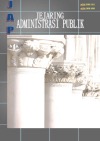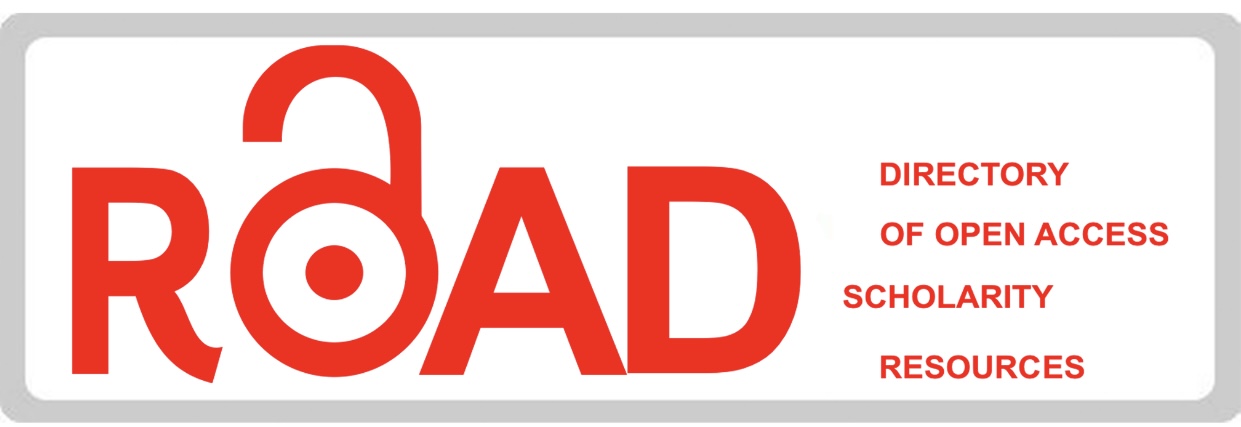A Grounded Theory Approach to Understanding Jombang Government Strategy in Facing the Era of Digitalization
Downloads
In 1967, Glaser and Strauss created a book entitled "The Discovery of Grounded Theory; Strategies for Qualitative Research'', which was published and became a breakthrough in qualitative research. The work offers systematic consensus methodologies and strategies for a wide range of qualitative research practices. When talking about public administration, grounded theory is rarely used in literature studies, especially in Indonesia. In public administration, grounded theory methodology can be directed toward understanding how the government develops strategic processes for policy, both at the organizational and individual levels. This article discusses the grounded theory research method approach, which is aimed at understanding how the Jombang Regency Regional Government develops strategic processes in facing the era of digitalization. In-depth interviews were conducted with 10 high-ranking regional government officials. This is intended to understand in depth their understanding and experience in managing changing situations. The research results show that there are five core categories: (1) human resource development; (2) technological innovation; (3) improving the management system; (4) security; and (5) mindset. By using selective and axial coding, it was found that there were two main functions of strategy that emerged, namely (1) system maintenance; and (2) adaptation to global change.
Keywords: Grounded Theory, Public Administration, Public Policy, Strategy
Bogdan, L. C., & Biklen, S. K. (1992). Qualitative Research in Education: An Introduction to Theory and Methods. Boston: Allyn & Bacon.
Cady, S. H., & Hardalupas, L. (A lexicon for organizational change: examining the use of language in popular, practitioner, and scholar periodicals). 1999. The Journal of Applied Business Research, 81–94.
Carnevale, A. P. (1991). American and the new economy. Washington, D.C.: The Labor Society for Training and Development and the U.S. Department of Labor.
Clute, P. W., Clute, P., & Associates. (1999). Change at oil refinery: toward the creation of a learning organization. Human Resources Planning, 24-38.
Creswell, J. W. (2002). Educational research: planning, conducting, and evaluating qualitative and quantitative research. Colombus, OH: Merril Prentice Hall.
Cross, R., & Smith, J. (1996). Customer bonding: Pathway to lasting customer loyalty. Lincolnwood: IL: NTC Business Books.
Das, T. K. (1995). Managing Strategic Flexibility: Key to Effective Performance. Journal of General Management, 60-75.
DiBella, A. J. (1993). The role of assumptions in implementing management practices across cultural boundaries. The Journal of Applied Behavioral Sciences, 311-327.
Gowing, K. F., Kraft, J. D., & Quick, J. C. (1998). The new organization reality: downsizing, restructuring, and revitalization. Washington, D.C.: American Psychological Association.
Herscovitch, L., & Meyer, J. P. (2002). Commitment to organizational change: extension of three-component model. Journal of Applied Psychology, 474-487.
Himam, F. (1996). Explaining change in organization: a grounded theory study of how the Housing Department of the University of Nebraska-Lincoln experiences change. (research project, University of Nebraska-Lincoln, USA).
Himam, F. (2002). Inventing The Future: A Meta-Etnographic Analysis Towards Understanding The Process of Individual and Organizational Adaptive Strategies to Change. (Unpublished Doctoral Dissertation), University of Nebraska-Lincoln, Nebraska, USA.
Indonesia. (2018). Peraturan Presiden (PERPRES) Nomor 95 Tahun 2018 tentang Sistem Pemerintahan Berbasis Elektronik. Jakarta.
Lazlo, C., & Laugel, J.-F. (2000). Large-scale organizational change: An Executive's guide. Boston, Massachusetts: Butterworth Heinemann.
Nevis, E. C., DiBella, A. J., & Gould, J. M. (1995). Understanding organizations as learning systems. Sloan Management Review, 73-85.
Stake, R. E. (1995). The art of case study research. Thousand oaks, CA: Sage Publications.
Stickland, F. (1998). The dynamics of change: insights into organizational transition from the natural world. London: Routlege.
Strauss, A. L., & Corbin, J. (1990). Basics of qualitative research: grounded theory, procedures, and technique. Newbury Park: Sage Publications.
Van de Ven, A. H., & Poole, M. S. (1995). Explaining development and change in organizations. Academy of Management Review, 510-540.
Copyright (c) 2024 Devy Riesta Zuhrotul Khumairoh, Damainsa Prahesti Nukyanto

This work is licensed under a Creative Commons Attribution-ShareAlike 4.0 International License.
All articles submitted by the author and published in the Jejaring Administrasi Publik are fully copyrighted to their authors under the Creative Commons Attribution-ShareAlike 4.0 International License. The formal legal aspect of journal publication accessibility refers to the Creative Commons Attribution-ShareAlike (CC BY-SA).
















